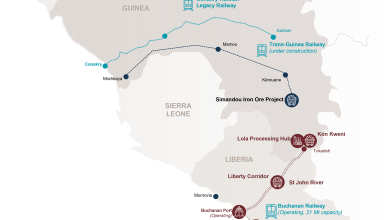Zimbabwe to stop tax incentives for miners from January 2025

The Government of Zimbabwe has announced plans to end tax relief for mining companies. The move set to be implemented in January 2025, aim to push firms to build facilities for processing raw materials domestically.
This policy shift is part of Zimbabwe’s broader goal to boost local beneficiation and maximize economic returns from its vast natural resources, particularly its mining sector, which is a critical revenue source. The country’s Ministry of Finance highlighted progress within the platinum industry, noting that a new base metal refinery plant is slated to become operational in 2025.
Mining sector
Zimplats Holdings, a major player in Zimbabwe’s platinum sector, has committed $29 million toward the $190 million project. Additionally, the government has imposed a 5% tax on unprocessed platinum exports and removed customs duties on imported equipment necessary for building beneficiation facilities. This combination of taxes and incentives aims to compel companies to process more of their output within Zimbabwe.
President Emmerson Mnangagwa has expressed support for this local processing initiative, indicating that the government plans to introduce further incentives to encourage the in-country processing of minerals. These policies align with Zimbabwe’s strategic effort to capitalize on its considerable natural resource wealth, which includes the world’s third-largest platinum reserves, alongside substantial deposits of gold, chrome, diamonds, and lithium. As part of this strategy, the government is also negotiating with lithium mining companies to bolster local beneficiation efforts.
Zimbabwe’s mining sector is highly diversified, with close to 40 different minerals. The predominant minerals include platinum group metals (PGM), chrome, gold, coal, lithium, and diamonds. The country boasts the second-largest platinum deposit and high-grade chromium ores in the world, with approximately 2.8 billion tons of PGM and 10 billion tons of chromium ore. The sector accounts for about 12% of the country’s gross domestic product (GDP) and 80% of national exports.






